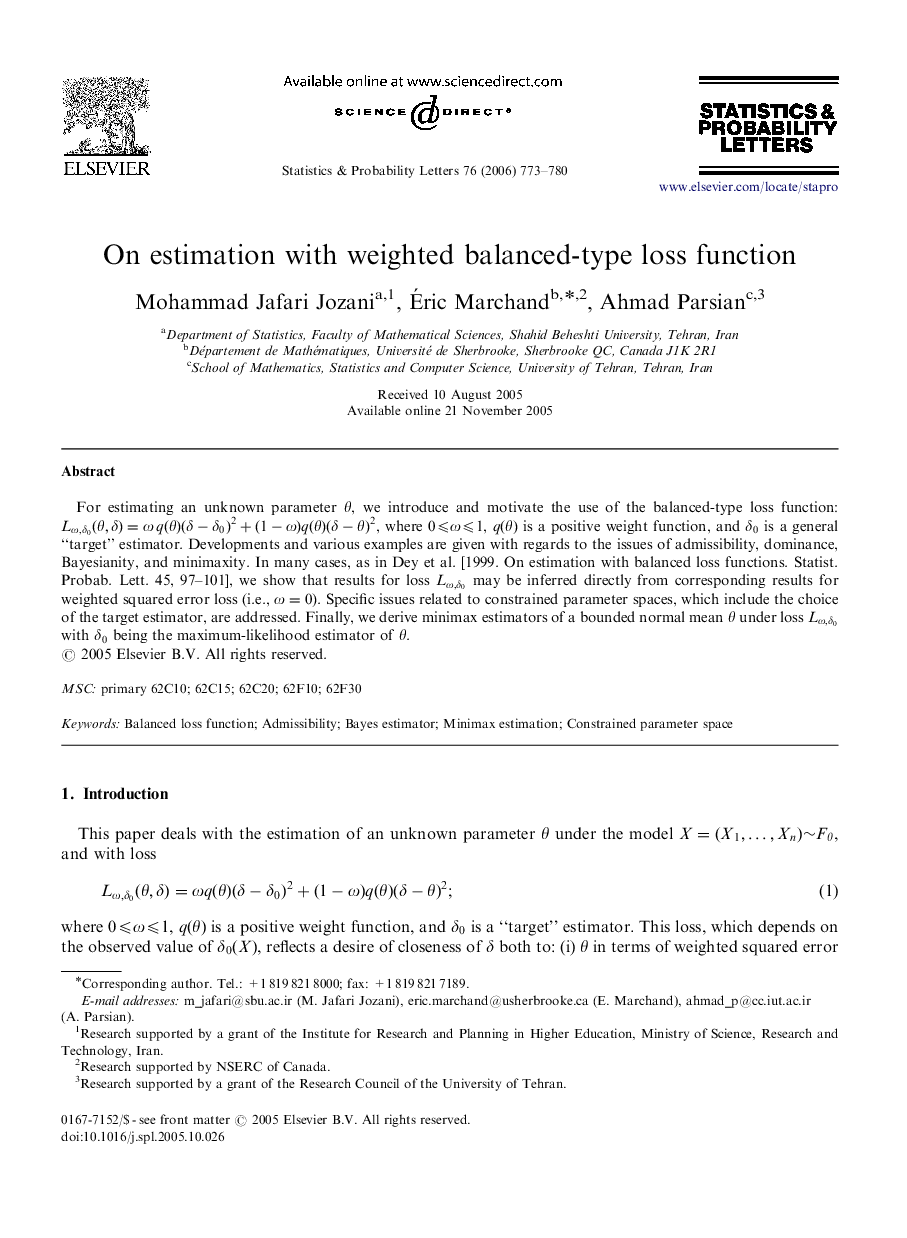| Article ID | Journal | Published Year | Pages | File Type |
|---|---|---|---|---|
| 1154018 | Statistics & Probability Letters | 2006 | 8 Pages |
For estimating an unknown parameter θθ, we introduce and motivate the use of the balanced-type loss function: Lω,δ0(θ,δ)=ωq(θ)(δ-δ0)2+(1-ω)q(θ)(δ-θ)2, where 0⩽ω⩽10⩽ω⩽1, q(θ)q(θ) is a positive weight function, and δ0δ0 is a general “target” estimator. Developments and various examples are given with regards to the issues of admissibility, dominance, Bayesianity, and minimaxity. In many cases, as in Dey et al. [1999. On estimation with balanced loss functions. Statist. Probab. Lett. 45, 97–101], we show that results for loss Lω,δ0Lω,δ0 may be inferred directly from corresponding results for weighted squared error loss (i.e., ω=0ω=0). Specific issues related to constrained parameter spaces, which include the choice of the target estimator, are addressed. Finally, we derive minimax estimators of a bounded normal mean θθ under loss Lω,δ0Lω,δ0 with δ0δ0 being the maximum-likelihood estimator of θθ.
